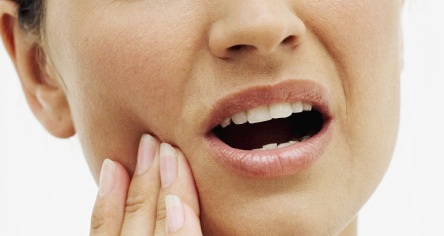Accidentally Bite Inside Of Cheek

The frustrating and sometimes painful experience of accidentally biting the inside of your cheek. It’s a common mishap that can occur to anyone, often when eating, speaking, or even during moments of distraction. The inside of the cheek, also known as the buccal mucosa, is a delicate area that can be prone to injuries, including bites. In this comprehensive guide, we will delve into the reasons behind accidental cheek biting, its symptoms, treatment options, and preventive measures to help you avoid this unpleasant experience.
Understanding the Anatomy of the Cheek
Before diving into the specifics of cheek biting, it’s essential to understand the anatomy of the cheek. The buccal mucosa is the inner lining of the cheeks, which is richly supplied with blood vessels and nerve endings. This area is sensitive and can be easily injured, leading to pain, swelling, and bleeding. The cheek muscles, including the buccinator and orbicularis oris, play a crucial role in controlling the movements of the mouth and cheeks. When these muscles contract involuntarily or in an uncoordinated manner, they can cause the teeth to bite down on the inside of the cheek.
Reasons Behind Accidental Cheek Biting
There are several reasons why people accidentally bite the inside of their cheek. Some of the most common causes include:
- Distracted eating: Eating while watching TV, using a phone, or engaging in conversation can lead to careless chewing and accidental biting of the cheek.
- Misaligned teeth or dental problems: Teeth that are not properly aligned or dental issues such as overbites or underbites can increase the risk of biting the inside of the cheek.
- Tongue or lip piercings: Having piercings in the tongue or lip can cause accidental cheek biting, especially if the piercing is new and the mouth is still adjusting.
- Oral habits: Habitual behaviors such as chewing on the inside of the cheek or biting the lip can lead to accidental biting.
- Stress and anxiety: High levels of stress and anxiety can cause muscle tension in the face and jaw, leading to involuntary movements and accidental cheek biting.
Symptoms of Accidental Cheek Biting
The symptoms of accidental cheek biting can vary depending on the severity of the injury. Common symptoms include:
- Pain: A sharp, stabbing pain or a dull ache in the affected area
- Swelling: The inside of the cheek may become swollen and inflamed
- Bleeding: In some cases, the bite may cause bleeding or bruising
- Difficulty speaking or eating: The pain and swelling can make it challenging to speak or eat comfortably
Treatment Options for Accidental Cheek Biting
Fortunately, most cases of accidental cheek biting can be treated with simple home remedies. Here are some steps you can take to alleviate the discomfort:
- Apply ice: Applying an ice pack to the affected area can help reduce swelling and ease pain.
- Use topical pain relievers: Over-the-counter pain relievers such as Orajel or Anbesol can be applied topically to numb the area and reduce pain.
- Rinse with salt water: Rinsing the mouth with warm salt water can help reduce inflammation and promote healing.
- Avoid irritants: Avoid eating spicy, acidic, or sharp foods that can irritate the affected area.
- Practice good oral hygiene: Maintaining good oral hygiene can help prevent infection and promote healing.
Preventive Measures to Avoid Accidental Cheek Biting
While accidental cheek biting can happen to anyone, there are several preventive measures you can take to reduce the risk:
- Eat slowly and mindfully: Pay attention to your eating habits and try to eat slowly and carefully.
- Avoid distractions while eating: Try to avoid eating while watching TV, using your phone, or engaging in conversation.
- Practice good oral hygiene: Regularly brushing and flossing your teeth can help prevent dental problems that may contribute to accidental cheek biting.
- Manage stress and anxiety: Engage in stress-reducing activities such as meditation, yoga, or deep breathing exercises to help manage stress and anxiety.
What are the most common causes of accidental cheek biting?
+The most common causes of accidental cheek biting include distracted eating, misaligned teeth or dental problems, tongue or lip piercings, oral habits, and stress and anxiety.
How can I prevent accidental cheek biting?
+To prevent accidental cheek biting, eat slowly and mindfully, avoid distractions while eating, practice good oral hygiene, and manage stress and anxiety.
What are the symptoms of accidental cheek biting?
+The symptoms of accidental cheek biting include pain, swelling, bleeding, and difficulty speaking or eating.
In conclusion, accidental cheek biting is a common experience that can be painful and frustrating. By understanding the reasons behind this phenomenon, taking preventive measures, and treating the symptoms promptly, you can reduce the risk of accidental cheek biting and promote oral health. Remember to eat mindfully, practice good oral hygiene, and manage stress and anxiety to maintain a healthy and happy smile.

